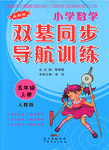题目内容
Many people have seen Harry Potter and The Halfblood Prince since it came out last July. And just like the readers of the Harry Potter books,the theater audience have included children,teenagers,and adults.
The Halfblood Prince is the sixth Harry Potter movie,and is based on the sixth in the se?ries of seven books written by the author J. K. Rowling. The story of the final book,The Deathly Hallows,is going to be told in not one but two movies,which will come out in 2010 and 2011.
In some ways,The Halfblood Prince is just like the other stories:Harry is again the hero fighting against the forces of evil,a lot of the action takes place at the Hogwarts School of Witchcraft and Wizardry,and there are familiar things such as the game of Quidditch (sort of like soccer,although it is played in the sky and the players ride on broomsticks) .
One of the differences with this movie is that we see less of the evil wizard Lord Voldemort,but there is still a lot of evil in the story―in fact,most movie critics say The Halfblood Prince feels "darker" than the other movies because you can feel the presence of Voldemort most of the time.
This is certainly true at the beginning of the movie,when there is an attack on London by Voldemort's followers,the "Death Eaters". Like a few other things in the movie,this was not in the book of The Halfblood Prince,and might therefore be a surprise for many Harry Potter fans.
Another difference is that the movie spends more time looking at the relationships between the students at Hogwarts. Harry,Ron,Hermione,and the others are now teenagers rather than children―there is even a little romance in the story.
Daniel Radcliffe,19, Harry Potter in the movie,said he will be "very sad" when the series movies end,but also excited because he will be able to play different roles.
( ) 1. We can learn from the passage that .
A. the focus of the final movie is to be " romance"
B. Daniel will play different roles in the final movie
C. There will be eight Harry Potter series of movies in all
D. J. K. Rowling wrote about an attack on London in the sixth book
( ) 2. The passage is mainly about .
A. the popularity of J. K. Rowling
B. The Deathly Hallows,the final book
C. the sixth movie of Harry Potter series
D. the differences between the sixth movie and the final one
( ) 3. "The Death Eaters" in Paragraph 5 are .
A. part of the evil side B. heroes against Voldemort's followers
C. Harry Potter's fans D. new friends in the Hogwarts School
( ) 4. What mainly makes the sixth movie of the series different from the others?
A. The main characters have grown up.
B. The game of Quidditch can't be seen in it.
C. The less presence of Voldemort makes viewers feel easier.
D. Harry Potter develops a friendship with Ron and Hermione.
1-4 CCAA
A篇:本文主要介绍了哈利波特电影第六部' 与其他几部的不同之处。
1. c细节理解题。由第二段"rte ft#-Bfood Prince is the sixth Harry Potter movie,and is based on the sixth in the series of seven books written by the author J. K. Rowling. The story of the final book,The Deathly Hallows,is going to be told in not one but two movies"可知C为正确答案。文中讲到第六部电影中有"爱情"内容,不是最后一部电影,A不正确。文章最后一句话"but also excited because he will be able to play different roles"并非说他在最后一部电影中扮演不同角色,B不正确。文中第五段讲到"袭击伦敦"这一情节在小说中没有,因此D不正确。
2. C主旨大意题。通篇介绍的是第六部电影的不同之处,因此,正确答案为 C.
3. A词义猜测题。从文章第五段的介绍"Voldemort's followers,the ' Death Eaters '" 可以看出Death Eaters是伏地魔的追随者,而并非与伏地魔战斗的英雄。
4. A细节理解题。文章的第六段谈到这部电影与其他几部不同之处在于更多的篇幅放在几个主要人物成长后的情感关系上。由第三段"and there are familiar things such as the game of Quidditch"可知答案B不正确。由第四段"The Half-Blood Prince feels i darker' than the other movies because you can feel the presence of Voldemort most of the time."可知答案C不正确。主要人物之间发展友谊并不是这部电影的不同之处,在前面的几部电影中已有相关内容,因此D不正确。

 开心试卷期末冲刺100分系列答案
开心试卷期末冲刺100分系列答案 双基同步导航训练系列答案
双基同步导航训练系列答案高中学生学习时间长、压力大,专家建议学生每天课后应采取适当的方式放松自己。某英文报"学生习作"专栏正在就"适合学生的放松方式"这一话题进行征文。假设你是二中高三(3) 班的班长,最近你对班上同学课后放松方式进行了调查。请根据表格提供的调査信息和要求,写一篇短文向该报投稿。
对象 | 二中高三(3) 班 |
人数 | 60人(男31人;女29人) |
1. 看电视(30人) | |
2. 玩电脑游戏(12人) | |
常用放松方式 | 3. 听音乐(8人) |
4. 进行体育锻炼(5人) | |
5. 没有时间放松(5人) | |
你的观点 | 哪一种(些) 放松方式是适当的?为什么? |
注意:
1. 短文包括对相关调查信息的介绍和你自己的观点;
2. 词数:120词左右。
monitor班长;make a survey of对.. 做调查;after class课后;pressure压力;play computer games玩电脑游戏